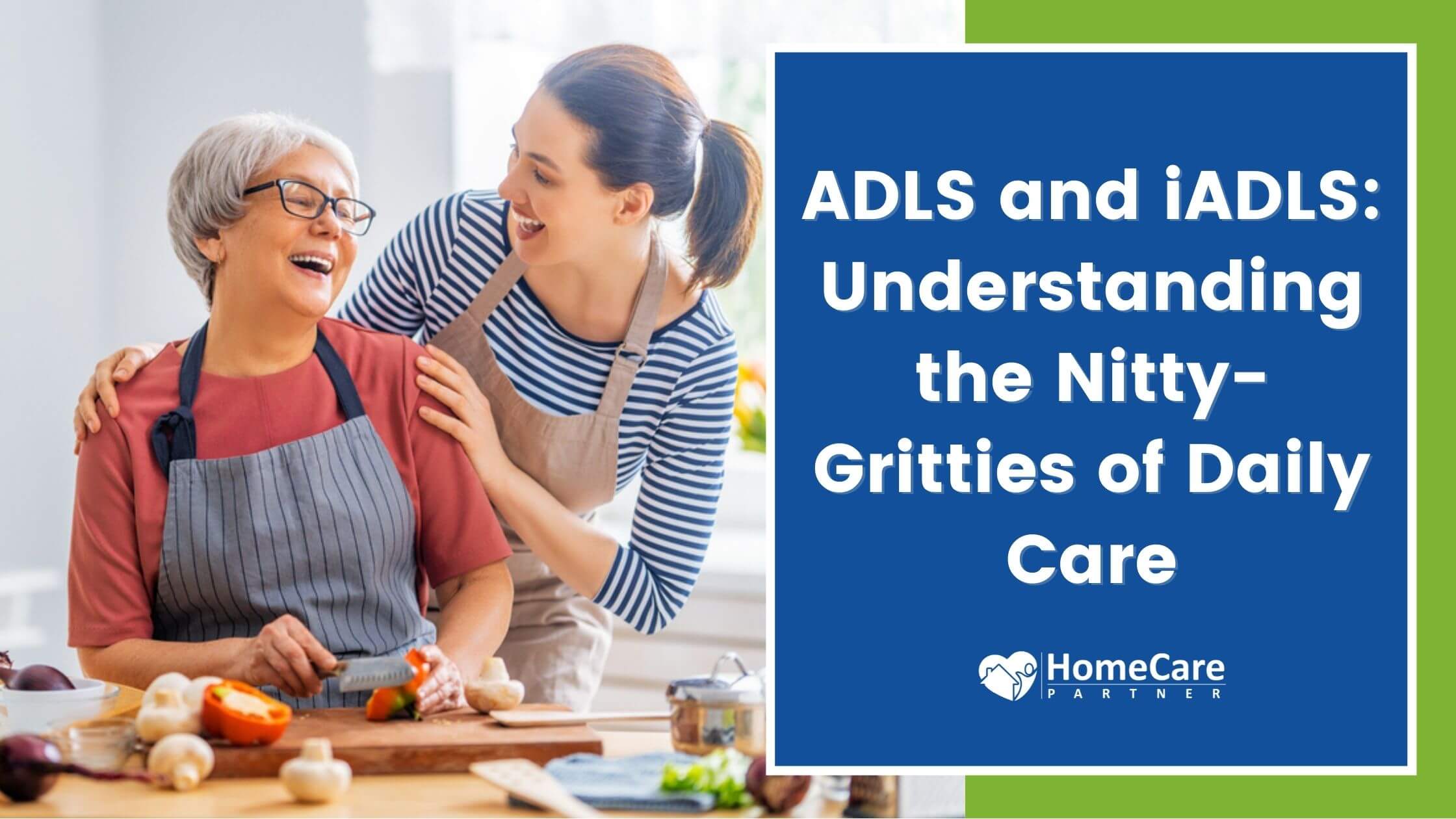


While ADLs stands for Activities of Daily Living, iADLs means Instrumental Activities of Daily Living. ADLs are the fundamental activities that allow patients to care for themselves, such as bathing and using the restroom. iADLs, on the other hand, are more complex, but they are also important in resuming a patient’s life. Balancing a checkbook and managing medications are two examples of iADLs.
Difficulties with ADLs and IADLs frequently correlate with how much assistance, supervision, and hands-on care someone requires. According to research, 26 % or 61 million adults in the United States live with a disability, and most of them need assistance with these essential daily activities. The percentage of such people is even higher at the age of 65 or above. However, most people find it difficult to distinguish between the needs of ADLS and iADLS, and hence, they do not get the right care. Therefore, it’s important to understand the difference between the two.
These are the fundamental self-care tasks that we learn as infants. They are also known as "Basic Activities of Daily Living" (BADLs). They are as follows:
For each ADL activity, your needs can vary from a little assistance (such as a reminder or "stand-by assist") to total dependency, which necessitates others performing the task for you.
These are the kinds of self-care skills that necessitate more complex thinking abilities, as well as organizational abilities. They are as follows:
ADLs and IADLs can be evaluated in several ways. While a health care professional's report is often thought to provide the most objective view of a person's functional status, a combination of assessments may fully capture a given individual's picture of disability.
The three types of ADL assessments physicians use are:
This is the best option for patients who require long-term care. In this assessment, you receive one point for each ADL that your loved one can perform independently. The total number of points accumulated at the end of the assessment indicates how independent your loved one is and the level of care they may require.
This assessment is best suited for use in an acute care setting. The task levels in this assessment are based on a scaled point system. Similar to the Katz assessment, the more points your loved one has in total, the more likely your loved one is independent.
This option is more comprehensive, incorporating ADLs, IADLs, and other social domains. The 18 items in this assessment tool are divided into the motor and cognitive categories. Each item is given a score based on a scale. The higher the score, the more self-sufficient your loved one is at completing the task.
Apart from these professional assessments, you should also keep track of your loved one’s daily activities at home. If your loved one cannot perform daily ADLs and iADLs, or if you have other safety concerns, it may be time to talk about increasing their level of support through an in-home caregiver.
Understanding the actual needs of your loved ones can be a difficult task, especially for elders. At Home Care Partner, we not only understand your needs but are also dedicated to helping you and your loved ones overcome all the challenges in daily life. Our care plans are tailored to meet all of your requirements. Our caregivers are trained in laundry, light housekeeping, meal planning, and other daily activities that you may require assistance with.
Contact us today if you need assistance caring for a loved one with daily activities. We will develop a care plan to meet your loved one's needs and assist you in finding the best in-home services.

Home Care Partner wants you to be confident in choosing us. We want to show that our care is unmatched!

Get 20% OFF a week's worth of care!
We want to show you that our care is unmatched.
Leave a Reply
Your email address will not be published. Required fields are marked *